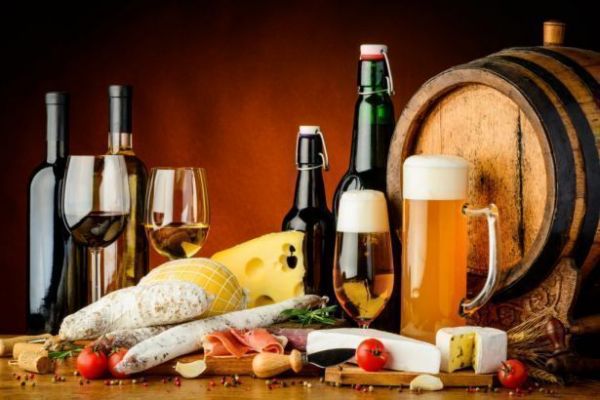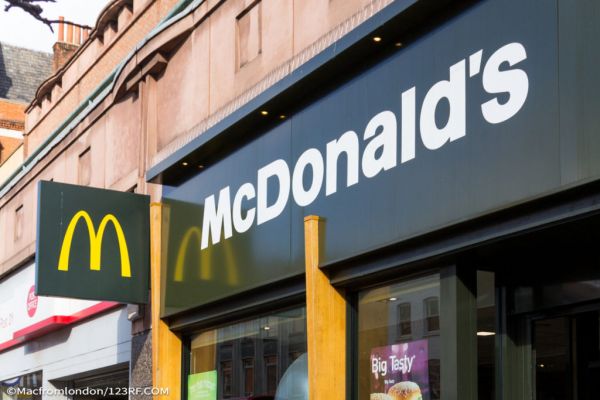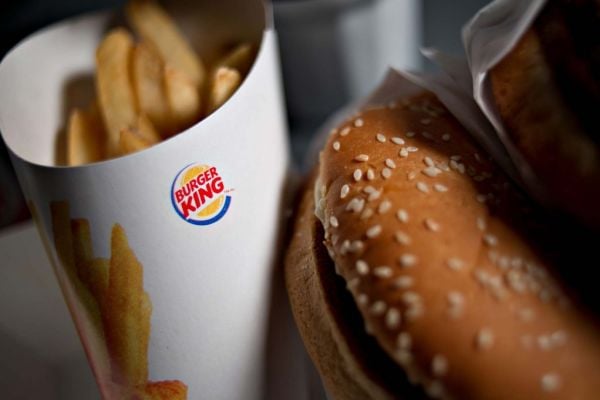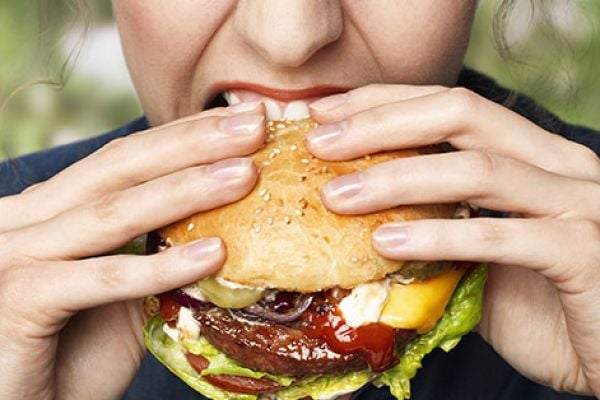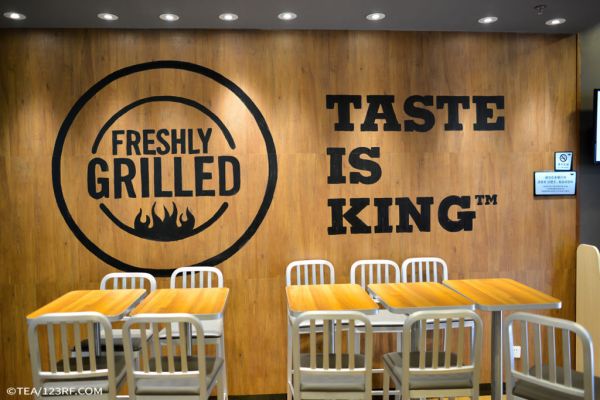Hospitality Ireland presents a round-up of global hospitality venue, drinks and food news.
FAST Acquisition Refuses To Terminate SPAC Merger With Fertitta Entertainment
FAST Acquisition Corp, a blank-check firm, refused to end its merger with Fertitta Entertainment, owned by billionaire Tilman Fertitta, saying the termination initiated by Fertitta is invalid.
Fertitta Entertainment had moved to terminate the deal, first agreed in February, on Wednesday December 1.
FAST said on Thursday Fertitta's delay in delivering its financial statements is why the deal has not been closed by the termination date, and so it has no right to unilaterally end the merger agreement.
Fertitta had in June expanded its agreement to go public with blank-check company FAST Acquisition Corp to include a few hospitality and restaurant entities.
The expanded deal implied an enterprise value of $8.6 billion for restaurant and gaming company Golden Nugget and restaurant-chain operator Landry's. The agreement announced in February had valued the combined entity at $6.6 billion.
Brazil's Coffee Co-Op Cuts Exports View; To Use "Big Bags" In Shipments
Cooxupé, the world's largest coffee co-op and Brazil's number one exporter, cut its projection for 2021 coffee exports to 4.8 million bags from 6.5 million bags previously, saying shipping bottlenecks and a smaller crop are reducing export volumes.
Cooxupé's president Carlos Augusto Rodrigues de Melo said the company was about to use for the first time an alternative to containerized shipping, using 1,000 kg bags to put the coffee in dry bulk vessels.
"We will ship more than 100,000 bags that way. It is an option to dodge high container price and the lack of containers in the market," Melo told Reuters.
Coffee, as well as cocoa, cotton and refined sugar, are usually shipped using containers. But shortages of that type of equipment, along with reduced space in container vessels, are leading to alternatives such as the use of bulk ships.
Melo said the co-op would likely make other shipments using the so-called 'big bags.'
Shipping hurdles, however, were not the only reason for smaller exports. The Cooxupé head said it was receiving around 2 million fewer bags of coffee from associated farmers due to a smaller crop.
Plus there are defaults. Many coffee farmers, in Brazil and abroad, are not complying with contracts to deliver coffee after prices jumped more than 60% this year.
Melo did not comment on that, but Cooxupé was one of the companies in Brazil suffering from farmer defaulting.
The co-op now projects to move 5.8 million bags of coffee in 2021, considering deals for both domestic and export markets, from a previous estimate of 7.2 million bags.
Looking ahead to the 2022 crop, Melo said the flowering and the conversion to fruit was not ideal. Trees have suffered during this year's drought, which has hurt their capacity to develop berries.
Sugar Hits Four-Month Lows As Omicron Fears Persist
Raw sugar futures on ICE hit their lowest in four months on Thursday December 2, before recovering to close little changed, as fears persisted that the Omicron coronavirus variant could hammer a nascent global economic recovery.
In contrast, coffee prices edged higher as container shipping backlogs continue, keeping supplies tight.
SUGAR
* March raw sugar closed 0.2% higher at 18.62 cents per lb, after hitting its lowest since early August at 18.46 cents.
* Dealers said sugar is unlikely to head higher despite positive fundamentals because the market remains fixated by the Omicron variant and has weeks to wait before the emergence of data on the scale of the threat it poses to global health.
* Indian sugar mills produced 4.72 million tonnes of sugar in October and November, nearly 10% more than a year ago, a trade body said.
* Top producer Brazil exported 2.67 million tonnes of sugar in November, against 2.9 million tonnes in the same month last year, data showed.
* March white sugar gained 0.1% at $484.70 a tonne, having hit its lowest in 2-1/2 months at $482.50.
COFFEE
* March arabica coffee closed up 1.4% at $2.3660 per lb.
* Top producer Brazil exported only 175,104 tonnes of green coffee in November, versus 275,841 tonnes a year earlier, data showed.
* Brazil's leading coffee co-op Cooxupe cut its estimates for exports due to shipping bottlenecks.
* January robusta coffee rose 0.9% to $2,335 a tonne, having closed up 2.3% on Wednesday.
* The market for both robusta and arabica remains well supported by container shipping shortages and record high freight rates that are prompting consumers to dip into stocks to source supplies.
* Heavy rains have triggered floods and landslides in top robusta producer Vietnam. Beach towns Phu Yen, Binh Dinh and Vietnam's main coffee growing province, Dak Lak were hardest hit.
COCOA
* March London cocoa rose 2.6% to 1,683 pounds a tonne, after dipping to a four-month low of 1,629 pounds on Wednesday.
* March New York cocoa gained 4.2% at $2,453 a tonne, having hit a four-month low of $2,333 on Wednesday.
* Cocoa is gaining support from signs supply is falling in top producing region West Africa.
Moet Hennessy Sees Challenges In Getting Suppliers To Adapt To New Sustainability Practices
Moet Hennessy is seeking to regenerate soils and stem the loss of biodiversity to play its part in the fight against climate change and is striving to convince suppliers to adopt new practices, the wine and spirits group's chief sustainability officer told Reuters.
The company, a unit of the world's largest luxury goods group LVMH, aims to get environmental certification for all its suppliers by 2025, and obtain regenerative agriculture certification by 2030, Sandrine Sommer, CSR and sustainability director of Moet Hennessy, told the Reuters Next conference on Friday December 3.
"My main message when we speak about sustainability and collective intelligence and how to work faster is that for sure, this is a collective work", Sommer said.
"We fixed these objectives, but we can't do this alone."
The Dom Perignon champagne and Belvedere vodka maker's efforts so far include planting trees to create ecological corridors across vineyards and working with glass makers to decrease carbon emissions and the weight of the bottles. In the Champagne region it has banned pesticides from vineyards and set up a new research and development centre to improve the sustainability of winemaking practices.
In October, the wine and spirits division of the luxury group issued a pledge to reduce its carbon footprint by adopting the 1.5°C target of the 2015 Paris Agreement.
It aims to reduce its greenhouse gas emissions by 50% by 2030 compared to 2019 levels.
"Everybody wants to pay respect to this new world and wants to be more sustainable first," Sommer said.
The division, which contributed nearly 11% of the LVMH group's revenues in 2020, is expected to generate around 6 billion euros in sales this year as demand from the U.S. and Europe helps compensate for coronavirus shutdowns in South East Asia, Moet Hennessy chief executive officer Philippe Schaus said in October.
Sodexo Seals Deal To Sell Paris Cabaret Le Lido To Accor
French catering group Sodexo said on Friday December 3 it had sealed a deal to sell the renowned Paris cabaret Le Lido to Europe's largest hotel group Accor PA>, confirming a media report.
"Sodexo confirms it reached a deal with Accor over plans to sell Lido de Paris," a Sodexo spokesperson said in an e-mail to Reuters.
Further details were not immediately available, ahead of a meeting early next week with staff representatives, the spokesperson said.
The price paid for Le Lido, a tourist hotspot located on the Champs Elysee avenue, would be "symbolic" in view of the sector's difficulties stemming from the coronavirus pandemic, French daily Les Echos, which was first to report the deal, said earlier.
Accor declined to comment.
In Europe, Omicron Ruins Christmas Party Plans
Paris riverboat cruise company Seine-En-Bateau was braced for a bumper Christmas party season reminiscent of the world before COVID-19. But that was before the Omicron variant landed.
Since the beginning of the week, co-owner Pascale Ben Soussan has fielded one cancellation after another as companies either abandoned their party plans or postponed them to a later date.
"It came out of nowhere. A wave of panic is sweeping through," Ben Soussan told Reuters. Half of the company's December bookings have already been wiped out, she said.
Much remains unknown about Omicron. It has gained a foothold in Asia, Africa, the Americas, the Middle East and Europe, where a fifth wave of the pandemic and surging infection numbers are fast draining any sense of festive cheer.
Evan as scientists race to understand how contagious and virulent the Omicron variant is, the experience of Seine-en-Bateau illustrates how companies are acting even before policy-makers in some countries impose new curbs.
The increasingly cautious mood deals a blow not just to bars and restaurants, but the wider entertainment industry.
Ben Soussan said Seine-en-Bateau charges tens of thousands of euros for a full-blown party for several hundred people. "It's the whole chain that is impacted: caterers, DJs, magicians, interior decor workers."
An increasingly bleak picture is emerging across Europe.
Highlighting the risks, Norwegian authorities said 13 people had been infected with the Omicron variant following a corporate Christmas party in Oslo.
British supermarket group Sainsbury's said it had postponed all Christmas parties until the new year while JPMorgan cancelled its annual festive carols reception in London, citing the pandemic. JPMorgan also said it was postponing indefinitely its year-end party in Paris.
Deutsche Bank has told its London staff they can hold small gatherings at the individual team level, with a negative lateral flow test required. Asset manager Schroders and the City of London Corporation which runs London’s historic financial district also asked guests to take rapid tests before attending particular festive events.
"Are companies willing to take responsibility for the welfare of their employees or do they think the risk is acceptable?" said one manager at a consultancy in London, who declined to be named to avoid identifying their employer.
British Prime Minister Boris Johnson has repeatedly insisted people should not cancel their holiday celebrations, though senior health official this week said people should not socialise unless necessary.
French President Macron is convening senior ministers for a COVID-19 'defence council' on Monday but has so far made clear he favours accelerating vaccine boosters over curbs. The German government has not yet issued any recommendations for the festive period.
In Germany, nine out of 10 restaurants and event locations had reported Christmas party cancellations by mid-November, according to hospitality body Dehoga. It estimates nearly half of Christmas parties have been called off so far.
Back in Paris, singer and DJ Severine Nells said her December, which two weeks ago was set to be as busy as in 2019, was fast unravelling as last minute cancellations came in. Clients were also heaping doubt on provisional January bookings.
"I was supposed to be working tonight. But (the client) pulled out two days ago," Nells said. "It's the companies making the decision because they're afraid.
AG Barr Bets On Plant-Based Milk With Majority Stake In MOMA Foods
British soft drinks maker A.G. Barr said on Monday December 6 it bought a 60% stake in porridge and oat milk maker MOMA Foods as it forays into the fast-growing plant-based milk sector.
Best known for fizzy drink Irn-Bru, A.G. Barr said it had agreed to assume full ownership of MOMA Foods over the next three years.
Demand for vegan milk alternatives has risen in recent years, with much of the demand for plant-based food and drink being led by millennial and generation Z consumers.
MOMA Foods, founded by Tom Mercer in 2006 as a breakfast stall in a railway arch in south east London, also makes low-sugar granola and bircher muesli-branded products, and most recently diversified into oat milk.
"I'm delighted that AG Barr is venturing into healthy oat-based products with such a great brand and an experienced team, led by Tom," said A.G. Barr Chief Executive Officer Roger White.
Jack In The Box To Acquire Del Taco For Over $450m
U.S. hamburger restaurant chain Jack in the Box Inc said on Monday December 6 it would buy Del Taco Restaurants Inc for $455.3 million, as it looks to expand its customer base and take advantage of the Mexican food chain's drive-thru foothold.
Under the deal, Jack in the Box will pay $12.51 in cash for each Del Taco share, which is a premium of over 66% to its closing price on Friday. The total value of the deal, including debt, is about $575 million.
Jack in the Box, which would now have over 2,800 restaurants spanning 25 states, said the deal would help the chain beef up its off-restaurant premise sales. About 99% of Del Taco restaurants feature a drive-thru.
San Diego, California-based Jack in the Box said it expects the deal to immediately add to its earnings, adding the combined company would realize about $15 million in savings by the end of fiscal 2023 through supply chain and digital efficiencies.
BofA Securities is serving as the financial adviser to Jack in the Box, while Piper Sandler & Co is advising Del Taco.
AB InBev Sets First Profit Growth Target Under New Chief
Anheuser-Busch InBev's new leadership set the company's first earnings target on Monday December 6, forecasting 4% to 8% growth in core profit over the next four years based on rising beer sales and expansion in other drinks and even food.
Michel Doukeris, who has been chief executive of the world's largest brewer since July 1, told Reuters before an investor seminar on Monday that the beer market had expanded over the past four years, despite a false narrative that it was not growing.
Beer was also forecast by Euromonitor to expand its share of the alcohol market in the next four at the expense of wine and spirits, he said.
AB InBev, which sells one in four beers sold globally, should benefit from that growth and accelerate it by pushing higher-priced 'premium' beers, Doukeris said, promoting non-beer products such as seltzers and canned wines and cocktails, and selling more online.
The group will also look closer at by-products of barley brewing such as proteins and fibres, which were now sold "almost for free", but could be incorporated into plant-based food.
Doukeris, AB InBev's former head of sales and of its North American business, replaced fellow Brazilian Carlos Brito, who built the brewer into the world's largest during 15 years at the helm.
Brito steered growth through acquisitions and cost savings. His successor is focusing more on boosting sales of over 500 brands, including seven of the world's top 10 beers, in an already concentrated market.
In the 10-year period from 2010 to 2019, AB InBev's earnings before interest, tax, depreciation and amortisation (EBITDA) rose by an average 7.3%, then fell 2.4% in pandemic-hit 2020. The Belgium-based company is forecasting 10%-12% expansion this year.
Its target for "organic" EBITDA growth removes the impact of currency changes when converting earnings from foreign operations, and of acquisitions and divestments.
FTSE 100 Posts Best Session In Over Four Months On Defensive, Energy Boost
UK's FTSE 100 ended higher on Monday December, posting its best session in over four months as defensive sectors and energy shares led gains, while Deliveroo fell on concerns about a European Union ruling on gig workers.
The blue-chip FTSE 100 index ended 1.7% higher at 7,232.28, its best session since July 21.
Defensive sectors such as consumer staples and healthcare tend to be less sensitive to the economic climate than some other groups. British American Tobacco, Reckitt Benckiser and Unilever gained nearly 2% and were among the biggest boosts.
Most sectors ended in positive territory as sentiment steadied after a volatile start to December that was dominated by fears around the Omicron coronavirus variant and an increasingly hawkish outlook by the U.S. Federal Reserve.
A health official in South Africa said early observations of children sick with COVID-19 in the country that has been driven by the Omicron variant showed mild infections.
"Today is a kind of double bullish whammy," said Stuart Cole, head macroeconomist at Equiti Capital. "You've got stocks that are cheap to buy, and you've got a reason to buy them in that as some of the fear that was around last week seems to have been taken away."
Deliveroo ended 3.2% down after hitting a record low earlier in the session. European peers Just Eat Takeaway and Delivery Hero also fell about 5% each on fears of the European Commission's proposal concerning employment rights and the status of gig economy workers hitting the profitability of these companies.
Oil majors BP and Royal Dutch Shell added almost 2% each as crude prices jumped on hopes that the Omicron variant would have a less damaging economic impact if its symptoms proved mostly mild.
Bank of England Deputy Governor Ben Broadbent said that inflation in Britain might "comfortably exceed" 5% in April and that the country's tight labour market risked becoming a more persistent source of inflation.
The domestically focussed mid-cap index advanced 1.1%, with chemicals company Victrex PLC adding 4.3% after reporting a 46% rise in its pre-tax profit.
Chemicals firm Synthomer Plc declined 14.1% after a downgrade and price target cut by Morgan Stanley.
European Shares Bounce On Hopes Omicron May Be Mild
Travel stocks helped European shares mark a strong start to the week on Monday December 6, after sharp losses late last week, boosted by hopes that the Omicron variant of the coronivirus would be mild.
After marking its third straight week in the red, the pan-European STOXX 600 closed up 1.3%. The technology index was the only sector in the red, down 0.5%, tracking U.S. peers.
Some concerns about the Omicron variant were eased after a South African health official said the strain caused mild infections, while top U.S. infectious disease official Anthony Fauci told CNN, "it does not look like there's a great degree of severity" so far.
That saw travel and leisure stocks rejoice, with the index surging 3.9% and posting its best session since May.
"Last week's losses are likely to be taken back this week if people see that Omicron isn't as deadly as previous mutations, and as the European Central Bank remains wedded to their transitory inflation line," said Stuart Cole, head macro economist at Equiti Capital.
The Euro STOXX 50 volatility index slipped to 30.04 after spiking to 33.07 last week.
As oil climbed by $2 a barrel towards $72, the energy sector rose 1.9%. Industrial stocks were led higher by Airbus after Saudi Arabian Military Industries signed an agreement with the planemaker to form a joint venture specialised in military aviation services.
Roche rose 1.5% after the European Union's drug regulator recommended extending the use of the drugmaker's RoActemra arthritis drug for adult COVID-19 patients.
Investors are also watching out for key U.S. inflation figures later this week that could settle the path for an interest rate hike by the Federal Reserve.
"We are still 'overweight' on equities... We expect new virus variants to delay, but not derail, the restart and see (Fed's) policy rates rising only modestly," BlackRock Investment Institute said in a note.
But, a survey showed investor morale in the euro zone deteriorated in December to reach its lowest level since April.
Italy's benchmark FTSE MIB gained 2.2% after Fitch upgraded the country's credit rating to "BBB" from "BBB-" as it expects the economy to expand after reopening from the pandemic-led lockdowns.
Just Eat Takeaway.com slipped 4.5% to the bottom of the STOXX 600 after Bernstein downgraded the stock to "market perform". Other food delivery firms Delivery Hero and Deliveroo plunged ahead of an EU Commission ruling on gig workers later this week.
European banks UniCredit and Deutsche Bank added 2.7% and 4% respectively, following J.P.Morgan upgrades.
Food Delivery Shares Rise Ahead Of EU Draft Rules On Gig Workers
Shares in ride-sharing and food delivery companies rebounded on Tuesday December 7, ahead of an European Commission proposal expected Dec. 9 that will define when couriers should be considered employees and when they should be considered independent contractors.
The Financial Times on Tuesday December 7 reported that the proposal, under development for years, will as expected put the burden of proof on companies, rather than workers, to show when their delivery people are self-employed.
A spokesperson for the European Commission declined to comment until its publication on Thursday December 9.
Shares in the Netherlands' Just Eat Takeaway.com rose 6.3% by 1030 GMT, Germany's Delivery Hero rose 4.5, and Britain's Deliveroo was up 1.9%, reversing similar declines on Monday, in an apparent relief rally to recover some on Monday's losses. Uber shares closed at $38.49 in the United States.
Analysts for Citi said in a note that Deliveroo is most heavily exposed to the proposed rule change, while larger European rival Takeaway already uses an employment model. Delivery Hero and Uber have larger operations in non-European markets.
At present, gig economy workers in Europe have typically been considered self-employed, relieving companies of the obligation to pay them minimum wage or giving them sick leave or holiday pay.
However, court decisions in the Netherlands, Britain, Italy and Spain in the past two years have challenged that.
The FT, citing from the unpublished proposal, said it could mean the reclassification of 4.1 million contractors as employees, leading to €484 million in extra annual pay and entitling them to the same "rights and protections" as other employees under European law.
A study by Copenhagen Economics commissioned by an industry group for the platform companies published last month argued that the new European rules might lead to the loss of 75,000 jobs.
News by Reuters, edited by Hospitality Ireland. Click subscribe to sign up for the Hospitality Ireland print edition.
